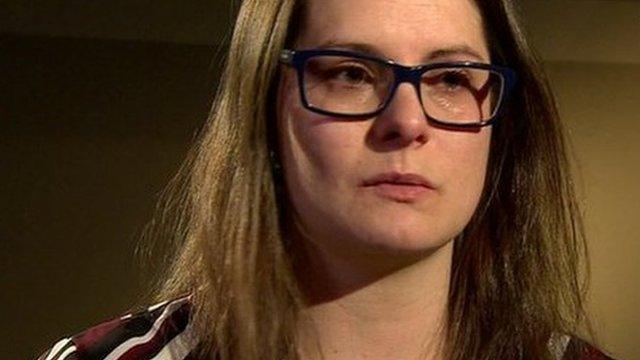NHS 111 staff 'pressured' not to transfer calls to 999
- Published
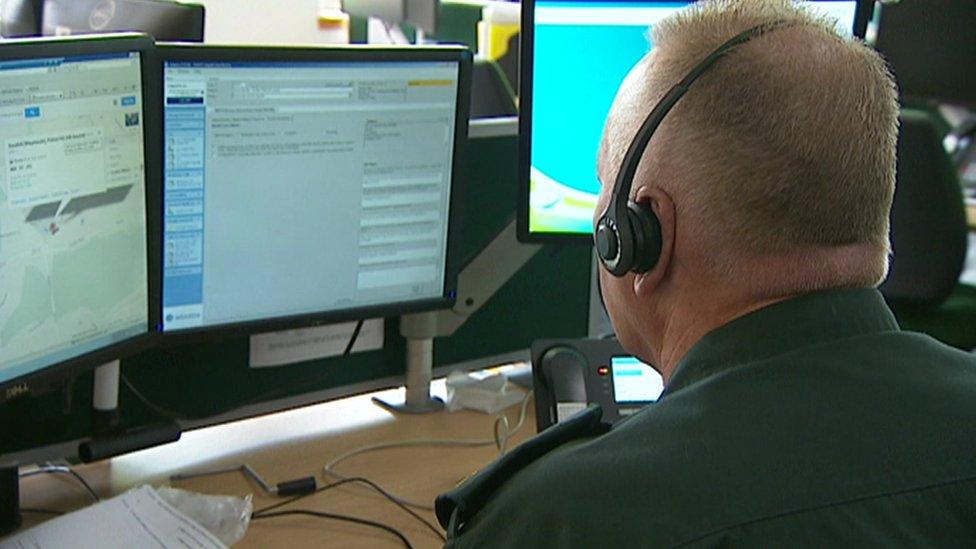
The Royal College of Nursing says 111 call handlers are being put under pressure not to transfer calls to 999
NHS 111 staff in Devon, Cornwall and Dorset are being pressurised not to transfer calls to the 999 service, the Royal College of Nursing (RCN) says.
The union, which represents nurses, midwives and health care assistants, says there is "implicit pressure" on staff dealing with non-emergency calls.
South Western Ambulance Service Trust denies the claims, saying it just wants to reduce "inappropriate referrals".
Over a 12-month period, referrals to 999 have risen by 16%.
The number of emergencies dealt with by paramedics has gone up by 5% in the past year, with some of the incidents being referrals from the 111 service.
Call handlers at the 111 service are not medically trained, but ask a set of clinical questions and determine the most appropriate response from the answers they get.
They are able to consult medical staff at the centre.
Additional training was given to NHS 111 staff following a critical report into the death of a baby with sepsis in Cornwall, but staff have claimed the South Western Ambulance Service Trust (SWAST) does not have enough clinicians to cope with the numbers calling the service.
The RCN says this means nurses are unable to take breaks and the pressure of dealing with the number of calls waiting too long for a clinical response is creating high levels of stress-related sickness.
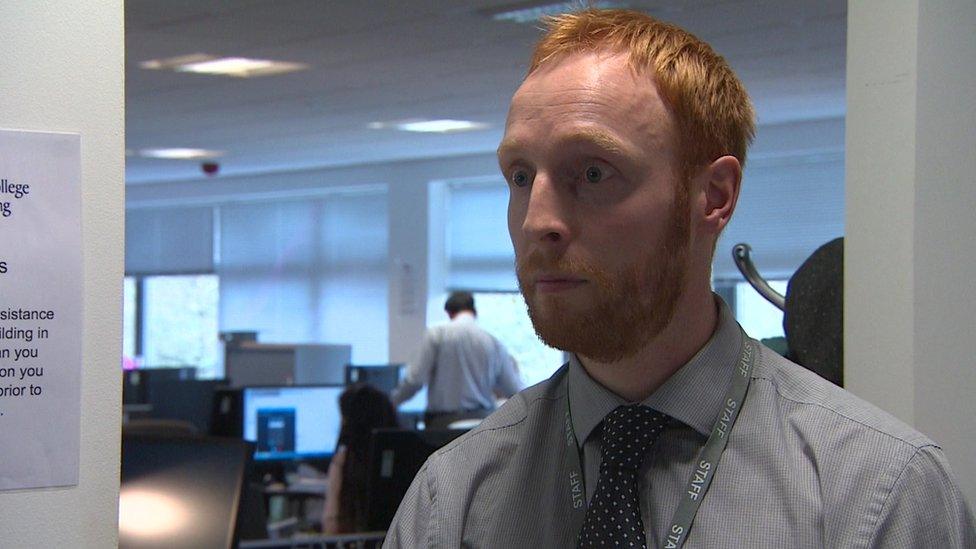
Steven Pulsford, senior Royal College of Nursing officer, said the union was concerned about patient safety
Steven Pulsford, a senior officer at the RCN, said: "There appears to be implicit pressure not to put calls through to 999 and we're understandably concerned about patient safety as a result of that.
"The concern is that there are not enough clinicians in the service and absence due to work-related stress is causing increased pressure on those who do remain at work."
The union says concerns have been raised by staff since April 2015 but they have not received "satisfactory responses".
SWAST's chief executive Ken Wenman said the trust was aware of the concerns and they have been included in an investigation which has been commissioned.
He said he had already agreed to meet the RCN to discuss the matter further.
"Patient safety and staff welfare is our highest priority and all complaints and concerns raised are taken very seriously," he said.

Timeline of events
September 2013 - Devon's 111 helpline is launched
June 2015 - Inquest hears that William Mead's death 'could have been avoided'
January 2016 - Report finds that NHS 111 'missed chances to save sepsis baby William Mead'
February 2016 - NHS investigates 'sleeping 111 medics' at Dorset call centre
February 2016 - Top paediatrician questions safety of NHS 111 helpline for young children

The number of NHS 111 referrals to 999 climbed by almost 16% at the trust from between April and December 2014 and the same period in 2015.
SWAST claims inappropriate ambulance call-outs "can create fear and anxiety when it is not necessary".
Call advisors must now refer up before transferring to 999, unless the patient has stopped breathing or has no pulse.
It also asks call advisors to report any nurse who they may think have inappropriately sent an ambulance.
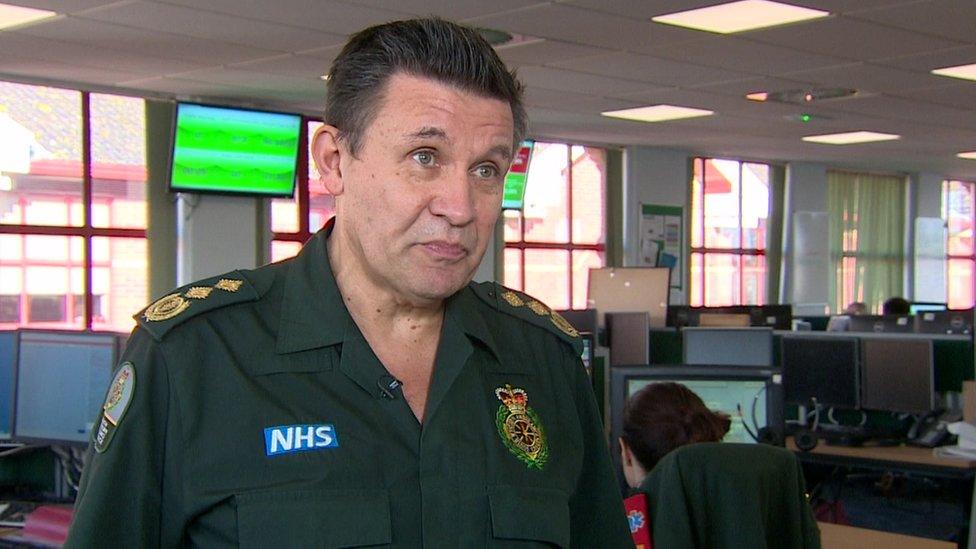
Neil Le Chevalier, director of operations at South Western Ambulance Service Trust, denied there was any policy to avoid 999 referrals
Neil Le Chevalier, director of operations at SWAST said it's "never been the case" that call handlers have faced pressure not to transfer to 999.
"We always say to our 111 call centre 'if there's a priority call then you must put them through' and an ambulance is sent right away."
A meeting between the Royal College of Nursing and SWAST has been arranged for next week.
- Published20 February 2016
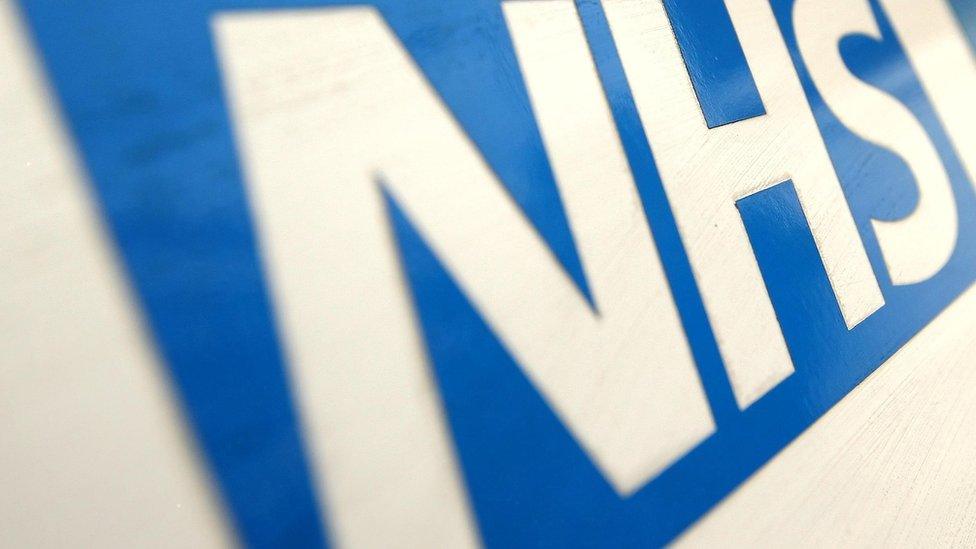
- Published22 February 2016
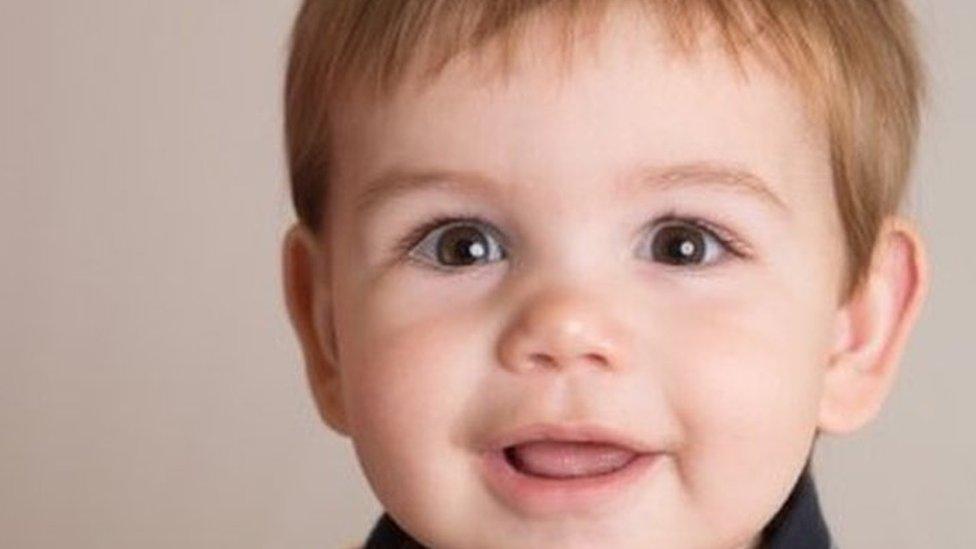
- Published26 January 2016
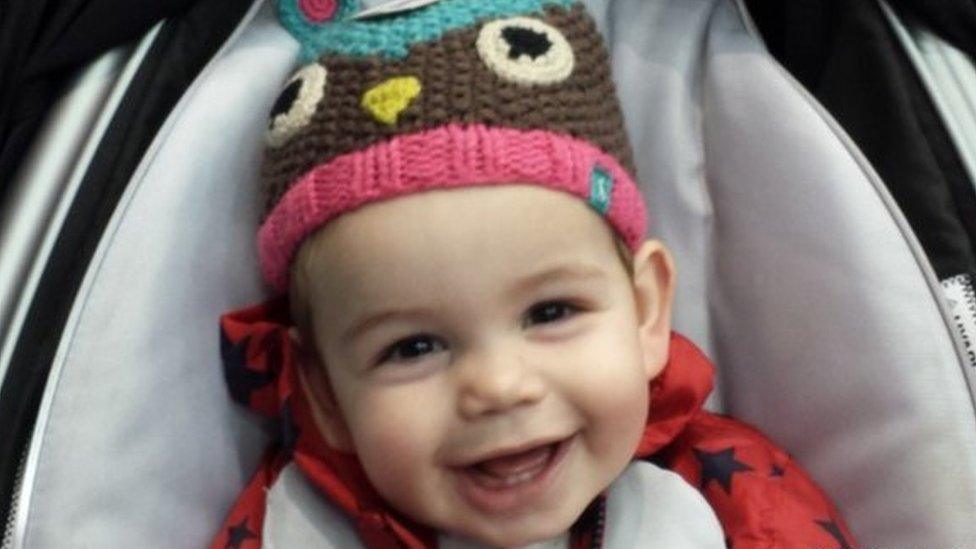
- Published26 January 2016
